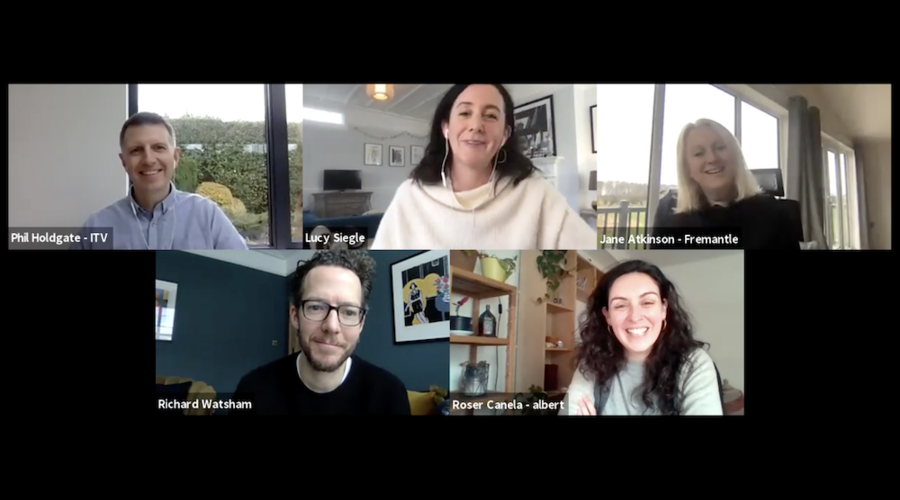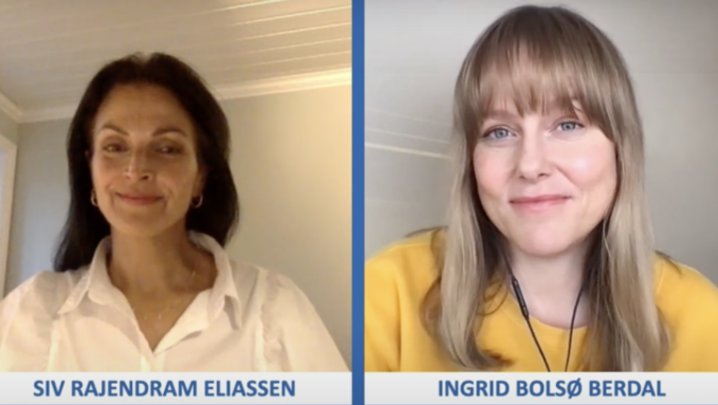The urgent need to act on climate change was emphasised at an RTS debate that examined whether it was possible to make TV programmes that are genuinely sustainable.
Roser Canela-Mas, Industry Sustainability Manager, BAFTA / Albert, said that last year on average making an hour of TV in the UK was responsible for generating 9.2 tons of carbon.
This was equivalent to the annual carbon footprint of two UK households, she said, using gas and electricity.
Producing drama, which often involves filming overseas, had a greater impact – generating around 38 tons of carbon per hour.
She reminded the RTS that the TV sector needed to examine how it operated as a business and to “change every aspect of our business” to help avert climate disaster.
Canela-Mas said that climate change was mentioned less often on TV than cats, cakes and weddings – although there were more references to it than there used to be.
Jane Atkinson, SVP Global Production, Fremantle, compared TV’s carbon-heavy practices to an alcoholic. “You know if you’ve got a problem with drink, you have to admit it to yourself…
“We found that a lot of companies had really good intentions (on becoming sustainable) but it’s important to track it and calculate it,” she said.
One small step forward was taken when the Italian version of The X Factor, filmed in a tent, changed the material the tent was made of so that it would absorb pollution.
Now that sustainability targets across Fremantle’s production companies across the world had been introduced it was possible to gauge what progress was being made.
She said: “The Scandis are very far ahead as all our companies there have access to renewable energy which is the number one starting point (to reducing a programme’s carbon footprint).”
Atkinson acknowledged that in some other countries, producers lacked access to renewables.
Richard Watsham, Director of Commissioning, UKTV, said that since last April all the company’s original commissions had been mandated for Albert certification, the BAFTA-run scheme that aims to encourage TV producers to reduce waste and lower their carbon footprint.
“We also offset any carbon that we can’t reduce,” he told the RTS.
UKTV had attempted to embrace the Planet Placement initiative – designed by Albert to raise awareness of climate change – and embed awareness of climate issues in programmes, irrespective of their genre.
“One of the biggest effects TV can have is influence, be it with authorities or individuals.
“That will have a more significant impact than us doing important work within our industry to reduce our carbon footprint.
“The two things need to go hand in hand.”
UKTV now met producers before every production to talk through sustainable working practices.
When the show was finished, another discussion was held to discover if the good intentions had been put into practice.
“One of the things we need to do better is to have those conversations early on in the production process,” he insisted.
Phil Holdgate, Head of Production Sustainability, ITV Studios, said that “people were genuinely keen to be green, they understand the problem although they don’t necessarily understand the science behind it.”
He added: “The recurring theme is that they need guidance and direction.”
ITV had committed to becoming a net zero carbon business by 2030.
There were four aspects to this initiative: energy, waste, sourcing – 90% of ITV’s emissions came from the company’s supply chain – and cultural change.
Live sports broadcasting had the potential to cut its carbon footprint by using advances in technology such as cloud-based technology, which had been accelerated by the health crisis.
“Technical innovation has a huge part to play,” said Holdgate. “If the kit’s getting smaller and potentially we’re not carrying as much around…My personal frustration is the pace of it is too slow.
“We really need to pick up the pace and engage with our supply chains and to make people realise there is demand out there.”
Producing Sustainable TV – Myth or Reality? was an RTS event held on March 2. It was chaired by journalist Lucy Siegle. The producers were Victoria Fairclough and Emily Wilson. A full report will be published in the March edition of Television.









